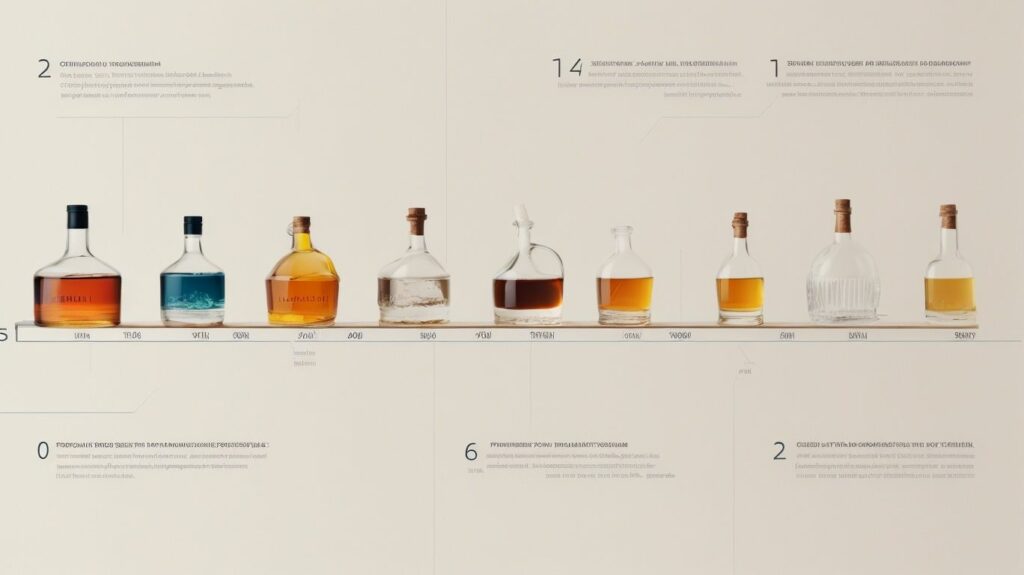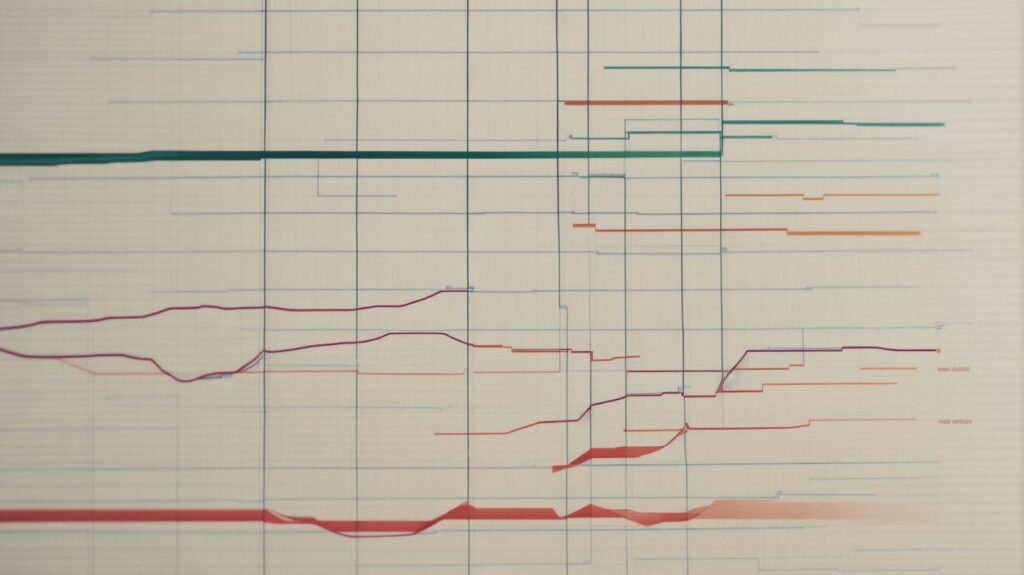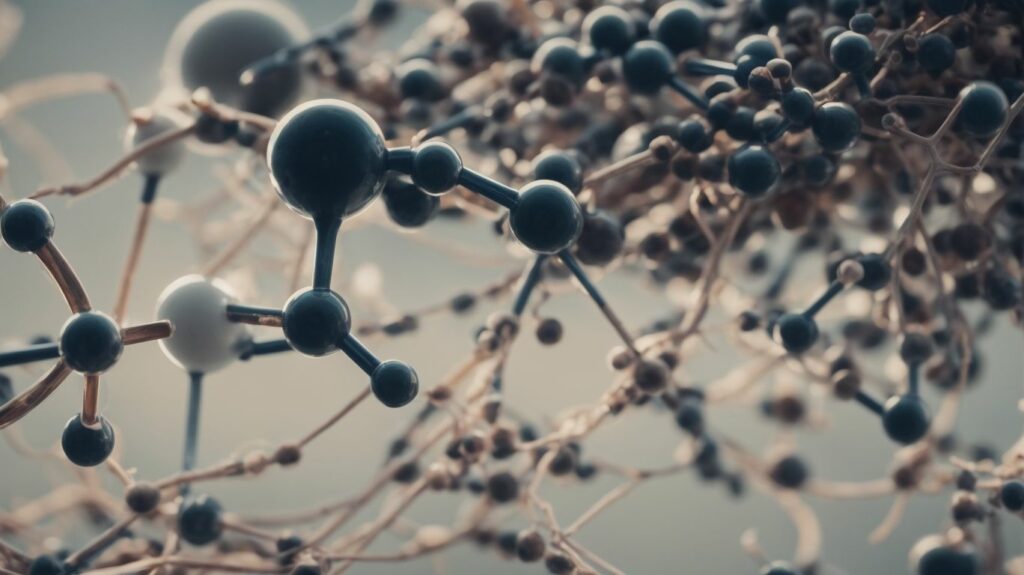20+ Years Experience
Specialist Alcohol Help

Do you ever find yourself reaching for a drink after a long, stressful day?
While it might seem like a harmless way to unwind, the connection between alcohol and mental health is more complex than you might think.
Understanding this relationship is crucial for maintaining overall well-being and living a balanced life.
In this blog post, we will explore the intricate link between alcohol addiction and other mental health problems, the physical and psychological consequences of alcohol misuse, and strategies for improving mental well-being while reducing alcohol dependence.
The connection between alcohol and mental health is multifaceted, with alcohol affecting brain function and mental well-being, and individuals using alcohol to cope with mental health symptoms.
Drinking alcohol impairs neurotransmitters in the brain, resulting in alterations in mood, behaviour, and an augmented likelihood of adverse emotions such as anger, depression, or anxiety, which can potentially lead to alcohol-related brain damage over time.
It has been observed that alcohol dependency with extended usage can lead to an increase in anxiety over time, highlighting the importance of monitoring one’s drinking habits.
Alcohol intake can initially provide a sense of relaxation and tranquillity; however, upon the effects wearing off, it can result in heightened levels of depression and anxiety, which can lead to mental health problems and an addiction cycle.
Individuals with severe mental illness are more likely to have alcohol issues because they ‘self-medicate’, indicating that they consume alcohol to cope with challenging emotions or symptoms.
There is a strong correlation between alcohol consumption and suicidal thoughts, suicide attempts, and death from suicide, showcasing how alcohol affects mental health.
Alcohol consumption disrupts neurotransmitters in the brain, leading to changes in mood, behaviour, and an increased risk of negative emotions such as anger, depression, or anxiety.
When we drink alcohol, it impairs the balance of chemical messengers in our brains, causing alterations in mood and behaviour, including increased aggression, impulsivity, and decreased inhibition.
These changes can contribute to the development of mental health conditions, making it all the more important to be aware of how much alcohol we consume and the potential risks associated with it.
The consumption of alcohol may lead to an increase in the likelihood of experiencing negative emotions such as anger, depression, or anxiety.
These emotions can further exacerbate existing mental health conditions or contribute to the development of new ones.
By understanding the effects of alcohol on our brain function, we can make more informed decisions about our drinking habits and take steps to reduce the risks associated with alcohol consumption.
Some individuals turn to alcohol as a coping mechanism for mental health issues, which can lead to a cycle of dependence and exacerbate existing problems.
Consuming alcohol can provide a fleeting sense of relaxation for anxiety, however, this sensation dissipates rapidly and can result in alcohol dependence.
It has been observed that habitual and excessive consumption of alcohol is associated with symptoms of depression.
As a result, it is generally not recommended to drink alcohol when taking antidepressants, as it can worsen depression and increase the side effects of some antidepressants.
By finding alternative methods of relaxation that do not involve the use of alcohol, such as meditation, yoga, exercise, or partaking in activities that bring pleasure, individuals can break the cycle of using alcohol as a coping mechanism.
This can ultimately lead to a healthier mental state and a reduced reliance on alcohol for stress relief.
Alcohol misuse can have both short-term and long-term physical and psychological consequences, impacting overall health and well-being.
Physical ramifications of alcohol misuse include harm to organs such as the brain, heart, liver, and pancreas, augmented by a higher risk of developing certain diseases and conditions, and physical alcohol withdrawal symptoms.
On the other hand, psychological consequences of alcohol misuse may include impaired judgment and decision-making, mood swings and agitation, as well as an increased risk of developing or exacerbating mental health disorders such as depression and anxiety.
Managing these physical and psychological consequences can take a toll on one’s mental health, making it crucial to address alcohol misuse and its effects on our well-being.
By understanding the consequences of alcohol misuse, we can make more informed decisions about our drinking habits and seek appropriate support when needed.
The immediate repercussions of alcohol misuse can involve impaired discernment, hazardous conduct, mishaps, and aggression.
These short-term consequences can lead to mood swings, agitation, aggression, and impaired impulse control, all of which can have a detrimental effect on mental and physical health.
Recognizing these short-term consequences can help individuals make better decisions about their alcohol consumption and minimise the potential harm to their mental well-being.
The potential long-term consequences of alcohol misuse may include serious health conditions, social problems, and an increased risk of mental health disorders.
Alcohol misuse has been linked to liver disease, heart disease, stroke, cancer, and a weakened immune system. Moreover, social issues that may arise from alcohol misuse include strained relationships, financial difficulties, and legal ramifications.
Alcohol misuse can also augment the risk of developing depression, anxiety, and other mental health disorders.
Recognising and addressing these long-term consequences is essential for maintaining both physical and mental health.
Seeking support and implementing healthier habits can help individuals reduce the risks associated with alcohol misuse and improve their overall well-being.
Alcohol use disorder (AUD) often co-occurs with other mental health conditions, such as anxiety, depression, and psychosis, complicating diagnosis and treatment.
Anxiety disorders, depression, and psychosis are commonly reported to be associated with AUD. It is common to observe major depression, bipolar disorder, anxiety disorders, schizophrenia, and antisocial personality disorder in conjunction with Alcohol Use Disorder (AUD).
Understanding the relationship between AUD and co-occurring mental health conditions is essential for proper diagnosis and treatment.
By addressing both the alcohol use disorder and the accompanying mental health condition, individuals can work towards a healthier mental state and reduce reliance on alcohol.
Anxiety disorders, including panic attacks, are common among individuals with AUD, with heavy drinking exacerbating anxiety symptoms and withdrawal.
The prevalence of AUD among individuals receiving treatment for anxiety disorders is estimated to be between 20% and 40%.
Anxiety disorders are characterised by the occurrence of recurrent and excessive fear or worry episodes that result in significant distress or impairment and persist for a minimum duration of 6 months.
Heavy drinking can worsen anxiety symptoms and lead to more depression and alcohol withdrawal. Recognising the link between anxiety, mood disorders, and substance abuse, anxiety alcohol use disorder (AUD), and seeking appropriate treatment for both conditions, can help improve overall mental health and reduce the reliance on alcohol to cope with anxiety.
Depression is often linked to heavy drinking, as alcohol can enhance depressive feelings and counteract the benefits of medication.
There is a direct correlation between heavy drinking and symptoms of depression. Consuming alcohol while taking antidepressants is generally not recommended, as it can worsen depression and increase the side effects of some antidepressants.
Individuals with depression may find that their symptoms are alleviated after they have discontinued alcohol consumption.
By addressing both depression and alcohol use, individuals can work towards a healthier mental state and reduce reliance on alcohol.
Alcohol can trigger or worsen psychosis symptoms, including agitation, paranoia, confusion, and disorganised thinking.
Alcohol psychosis is a serious condition. It can manifest upon acute intoxication, alcohol withdrawal or chronic alcoholism.
Symptoms of Alcohol Psychosis can be quite alarming. They include agitation, anxiety, depression worse than depression alcohol paranoia, confusion and disorganised or chaotic thinking.
It is advised that individuals who have experienced psychosis previously abstain from consuming alcohol, as they may find that alcohol can induce symptoms associated with psychosis.
By recognising the link between psychosis and mental ill health and alcohol use, individuals can seek appropriate treatment and support to manage their own mental ill health and reduce their reliance on alcohol.
Implementing strategies to reduce alcohol dependence and improve mental health can lead to better overall well-being.
Consulting with a professional, engaging in calming activities, and socialising without the use of alcohol are all viable strategies that may be employed to reduce alcohol dependence and improve mental health.
By adopting these strategies to stop drinking more and working towards a healthier lifestyle, individuals can experience improved mental health and reduced reliance on alcohol. This can ultimately lead to better overall well-being and a more balanced life.
Seeking professional help, such as talking to a GP or specialist, is crucial for addressing alcohol-related mental health issues.
Obtaining mental health services for alcohol dependence has numerous advantages, such as expert guidance, medical supervision, emotional support, access to resources, and accountability.
When seeking professional assistance for alcohol dependence, it is imperative to identify a qualified professional, such as a general practitioner or specialist, who can offer the requisite guidance and support.
It is also essential to be candid and frank about your alcohol consumption and any mental health issues you may be confronting, in order to receive the most effective treatment and support.
Engaging in alternative relaxation methods, such as exercise, yoga, or meditation, can help reduce reliance on alcohol for stress relief.
Various techniques can be employed to reduce stress and relieve anxiety too, including deep breathing, massage, meditation, tai chi, yoga, biofeedback, music and art therapy, aromatherapy, and hydrotherapy.
Utilising alternative relaxation methods can potentially benefit individuals by providing a healthy and natural way to manage stress and anxiety, thus reducing reliance on alcohol.
By exploring these alternative methods, individuals can work towards a healthier mental state and reduce dependence on alcohol.
Socialising without alcohol, by participating in activities like coffee dates or mini-golf, can help break the cycle of alcohol dependence.
Engaging in social activities without the use of alcohol can help disrupt any potential patterns of alcohol dependence, decrease stress levels, and promote better mental health.
Engaging in coffee dates, mini-golf, board games, and outdoor activities are all viable options for enjoying oneself without the consumption of alcohol.
By exploring these alternative activities, individuals can reduce their reliance on alcohol and work towards a healthier mental state.
Exploring alcohol-free options and implementing drink-free days can support a healthier lifestyle and improved mental health.
Examining alcohol-free options and instituting drink-free days could potentially promote a healthier lifestyle and improved mental health. Brands in the market for non-alcoholic beverages include Seedlip.
Adherence to drink-free days can help to sustain a healthy equilibrium and diminish the likelihood of mental health issues resulting from alcohol consumption.
Incorporating one drink alcohol-free days into one’s routine may be accomplished by establishing a goal, such as having one drink alcohol-free day per week, and scheduling activities that do not involve the consumption of alcohol.
Try alcohol-free alternatives, such as Seedlip or other non-alcoholic brands, which can help you stop drinking and reduce alcohol consumption.
Some alcohol-free soft drinks can include High Point Ruby Aperitif, Tanqueray 0%, Bax Botanics, Smidgin Gin, non-alcoholic beer, non-alcoholic wine, non-alcoholic spirits, and mocktails.
By exploring these alcohol-free alternatives, individuals can make more informed decisions about their alcohol consumption and work towards a healthier mental state and reduced reliance on alcohol.
Incorporating drink-free days into your routine can help maintain a healthy balance and reduce the risk of alcohol-related mental health issues.
The advantages of including drink-free days into one’s routine comprise enhanced mental health, heightened energy levels, and enhanced sleep quality.
Some advice for sustaining abstention from alcohol consumption includes avoiding circumstances where alcohol is present, having a strategy for managing cravings and identifying alternative activities to partake in instead of drinking.
By implementing drink-free days and exploring alcohol-free alternatives, individuals can work towards a healthier mental state and reduce reliance on alcohol.
Alcohol consumption can quickly lead to chemical changes in the brain, which can lead to more negative feelings, like depression and anxiety, as well as impeding information processing.
Consequently, it is important to be aware of how alcohol affects mental well-being and physical health.
Stopping alcohol consumption can have a positive impact on mental and physical health. Studies show that quitting drinking can lead to improved stress levels, relationships, work performance, and self-confidence.
Additionally, reducing or stopping drinking can help stabilise chemicals in the brain responsible for good mental health.
Alcoholism has been classified by the Diagnostic and Statistical Manual of Mental Disorders (DSM-5) as a mental health disorder, with physical and mental symptoms.
Addiction to alcohol, like other mental illnesses such as depression, is a medical disorder with psychological, biological and social components that can involve cycles of relapse and remission.
Some strategies for reducing alcohol dependence and improving mental health include seeking professional help, engaging in alternative relaxation methods, socialising without alcohol, exploring alcohol-free alternatives and implementing drink-free days.
These strategies can help individuals reduce their alcohol consumption and improve their mental health. Professional help can provide guidance and support to individuals support groups who are struggling with alcohol dependence.
Alternative relaxation methods such as yoga, meditation, and mindfulness can help reduce stress and anxiety. Socialising without alcohol.
Short-term consequences of alcohol misuse include impaired judgment, reckless behaviour, accidents, and violence, while long-term consequences of substance abuse can lead to serious health conditions, social problems, and an increased risk of mental health disorders.
Alcohol misuse can have serious short-term and long-term consequences. In the short term, it can lead to alcohol problems, to impaired judgment, reckless behaviour, accidents, and violence. In the long term, it can lead to alcohol problems, to serious health conditions, social problems, and an increased risk of mental illness.
In conclusion, understanding the link between alcohol and mental health is crucial for maintaining overall well-being and living a balanced life.
By exploring the intricate relationship between alcohol and mental health, recognising the physical and psychological consequences of alcohol misuse, and implementing strategies to reduce alcohol dependence and improve mental well-being, individuals can work towards a healthier mental state and reduce reliance on alcohol.
There are a range of other services that we can provide. Have a look at the list below for more information:











































































































































We Aim To Reply To All Enquiries With-in 24-Hours